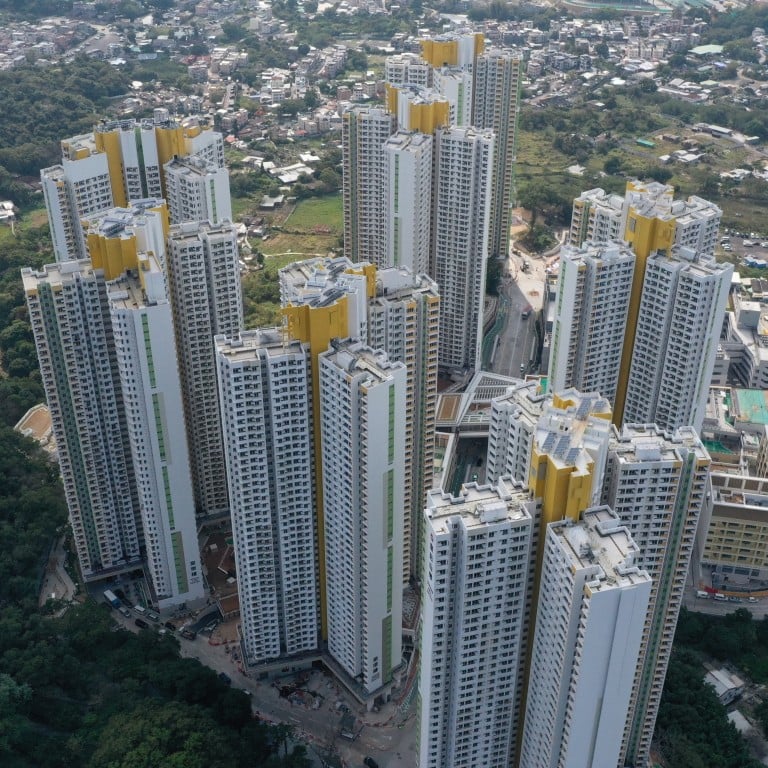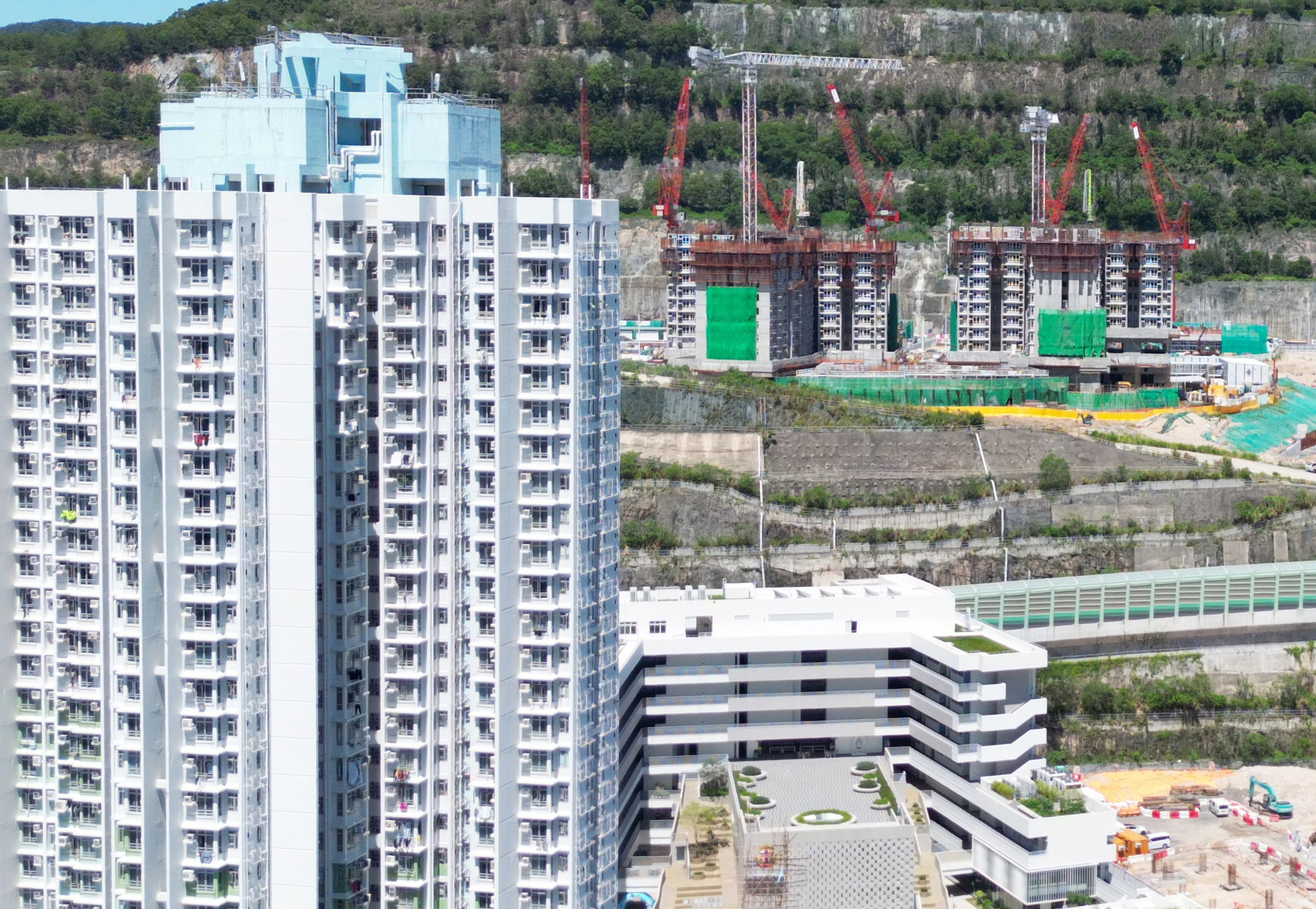
Hong Kong public housing tenants’ waiting time rises to 5.8 years for flats; increase blamed on low home production and project delays last year
- City’s major public housing provider announces figure for last quarter of 2023 for families and elderly households
- Figure up from 5.6 years in the last quarter of 2023, with housing production ‘lowest in recent years’
The average waiting time for a Hong Kong public rental flat has increased to 5.8 years and the city’s major provider has blamed the rise on low housing production and project delays last year.
The Housing Authority revealed on Wednesday that the figure for the last quarter of 2023 for general applicants – families and elderly households – had increased from the 5.6 years recorded in the previous quarter.
“[The increase] was mainly because the public rental housing production in 2023 was the lowest in recent years,” the authority said.
“The impact due to fewer flats available for allocation in the first three quarters of 2023 would continue to be reflected in the average waiting time in the subsequent quarters.”

Among the 13,700 flats the authority distributed last year, 12,900 were refurbished, with the majority in urban districts. It added that these applicants generally had waited longer, affecting the quarterly figure.
The authority last December was estimated to have produced 12,800 new public rental flats in the 2023-24 financial year. But the figure included delayed projects, which the provider also attributed to the increase in the average wait.
It highlighted the example of the 819 flats at Lai Yiu Estate, Kwai Chung. The resident intake was delayed from the third to the final quarter of last year.
The project was delayed after contractor Aggressive Construction Company had to suspend work at all of its sites involving tower crane operations following a fatal industrial incident in 2022 caused by the collapse of one.
The authority added the first group of homes at Fu Tip Estate in Tai Po should have been allocated in the last quarter of 2023, but it could only start in the first quarter of this year. The project will yield 6,776 flats in total.
The housing provider also said the average waiting time would improve as the supply gradually increased.
“Looking ahead in the coming 10 years, the overall public housing supply will register a clear upward trend,” it said. “The current short-term increase in average waiting time is a necessary stage to go through before the trend takes a clear turn.”
The government has identified enough land to build 410,000 public flats over the next decade, about 100,000 more than the estimated demand. But two-thirds of the flats are expected to be completed between 2029-30 and 2033-34.
The latest figures also showed the average waiting time for individual elderly applicants had gone up to four years from 3.9 years last September.
The authority said 5,800 general applicants were allocated a flat in the fourth quarter of las year, including 1,300 elderly one-person households.
About 180 homes were also given to people aged below 58 at the time of application.
Hong Kong ‘light public housing’ operator to be paid less if occupancy too low
The city was processing about 129,400 general requests, as well as 92,300 from individuals aged below 58 by last December.
Aggressive Construction Company said on Wednesday that it had been catching up to deliver the flats as soon as possible after the 2022 accident.
The contractor, which is responsible for four public housing projects involving about 13,000 flats at present, said it had been striving to finish the construction on time, while it had revised its work processes to minimise potential safety risks.
Chief Executive John Lee Ka-chiu pledged waiting times would not be more than six years as he outlined the “light public housing” scheme in his first policy address in 2022.
The light public housing scheme was designed to create 30,000 government-built temporary homes for families who have been on the waiting list for a standard public rental flat for at least three years.
The temporary flats will be completed in stages by the 2027-28 financial year and authorities said it was hoped the scheme would cut the waiting time for permanent and temporary public rental homes to 4.5 years by 2026-27.
Anthony Chiu Kwok-wai, a member of the authority and executive director of the Federation of Public Housing Estates, said he was not too worried about the average waiting time surpassing the limit set by Lee.
He said he was “optimistic” about the level of public housing supply in the next financial year and highlighted the 10,000 flats slated for Tung Chung and the 4,500 homes to be created in Tuen Mun.
Chiu added that the authority was also scheduled to sell subsidised flats to public rental housing tenants in the first quarter of 2024-25, which would vacate more homes and help to cut the waiting list.
The authority’s subsidised housing committee also suggested raising the asset limits for public rental housing applicants and tenants from the start of the new financial year in April.
Funding green light given to turn Hong Kong police station into mediation office
It proposed raising the cap by 3 per cent over the threshold set for the present financial year. Limits are set in line with household size, with the lowest being HK$278,000 (US$35,530) and the highest HK$917,000 at present.
The committee is also considering a freeze on income limits for individuals and families of four, and increasing that for the remaining households. The rise was 2.1 per cent on average.
A family of three will only be eligible to apply for a public rental flat if they make HK$24,740 a month and the value of their assets is below HK$505,000 if the changes are approved.
Households of three will also be required to vacate their homes if their income exceeds five times the limit or their asset value goes more than 100 times the income limit.
Those who earn money that amounts to between two and five times the limit will have to pay more rent.

